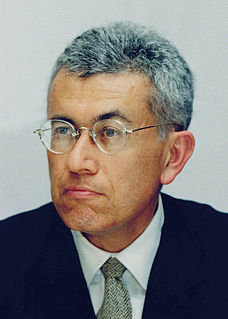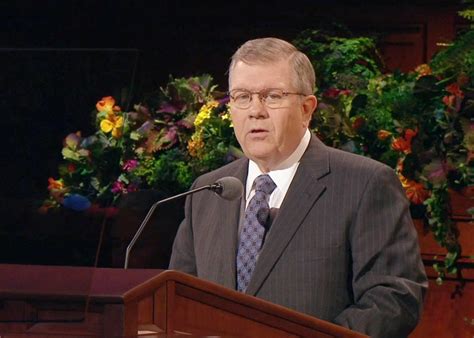A Quote by Jan Smuts
This is a good world. We need not approve of all the items in it, nor of all the individuals in it; but the world itself-which is more than its parts or individuals; which has a soul, a spirit, a fundamental relation to each of us deeper than all other relations-is a friendly world.
Related Quotes
The new paradigm may be called a holistic world view, seeing the world as an integrated whole rather than a dissociated collection of parts. It may also be called an ecological view, if the term "ecological" is used in a much broader and deeper sense than usual. Deep ecological awareness recognizes the fundamental interdependence of all phenomena and the fact that, as individuals and societies we are all embedded in (and ultimately dependent on) the cyclical process of nature.
It is not merely the brevity by which the haiku isolates a particular group of phenomena from all the rest; nor its suggestiveness, through which it reveals a whole world of experience. It is not only in its remarkable use of the season word, by which it gives us a feeling of a quarter of the year; nor its faint all-pervading humour. Its peculiar quality is its self-effacing, self-annihilative nature, by which it enables us, more than any other form of literature, to grasp the thing-in-itself.
In a world of democracies, in a world where the great projects that have set humanity on fire are the projects of the emancipation of individuals from entrenched social division and hierarchy; in such a world individuals must never be puppets or prisoners of the societies or cultures into which they have been born.
Our Heavenly Father is the Father of our spirits, and Jesus Christ is the Creator of this world. They know and understand us and the world around us better than anyone else. Looking to a higher source for knowledge and power can help us far more than relying on the wisdom of the world. We need to have the Spirit and look to the prophets and our priesthood leaders. We also need to look to the scriptures, which contain God's words to holy men.
We have an obligation to imagine. It is easy to pretend that nobody can change anything, that we are in a world in which society is huge and the individual is less than nothing: an atom in a wall, a grain of rice in a rice field. But the truth is, individuals change their world over and over, individuals make the future, and they do it by imagining that things can be different.
The world turns and the world spins, the tide runs in and the tide runs out, and there is nothing in the world more beautiful and more wonderful in all its evolved forms than two souls who look at each other straight on. And there is nothing more woeful and soul-saddening than when they are parted...everyting in the world rejoices in the touch, and everything in the world laments in the losing.
Thanks to art, instead of seeing one world only, our own, we see that world multiply itself and we have at our disposal as many worlds as there are original artists, worlds more different one from the other than those which revolve in infinite space, worlds which, centuries after the extinction of the fire from which their light first emanated, whether it is called Rembrandt or Vermeer, send us still each one its special radiance.
Branches or types are characterized by the plan of their structure,
Classes, by the manner in which that plan is executed, as far as ways and means are concerned,
Orders, by the degrees of complication of that structure,
Families, by their form, as far as determined by structure,
Genera, by the details of the execution in special parts, and
Species, by the relations of individuals to one another and to the world in which they live, as well as by the proportions of their parts, their ornamentation, etc.
We are wont to see friendship solely as a phenomenon of intimacy in which the friends open their hearts to each other unmolested by the world and its demands...Thus it is hard for us to understand the political relevance of friendship...But for the Greeks the essence of friendship consisted in discourse...The converse (in contrast to the intimate talk in which individuals speak about themselves), permeated though it may be by pleasure in the friend’s presence, is concerned with the common world.
Canada is the linchpin of the English-speaking world. Canada, with those relations of friendly, affectionate intimacy with the United States on the one hand and with her unswerving fidelity to the British Commonwealth and the Motherland on the other, is the link which joins together these great branches of the human family, a link which, spanning the oceans, brings the continents into their true relation and will prevent in future generations any growth of division between the proud and the happy nations of Europe and the great countries which have come into existence in the New World.
In this external world, which is full of finite things, it is impossible to see and find the Infinite. The Infinite must be sought in that alone which is infinite, and the only thing infinite about us is that which is within us, our own soul. Neither the body, nor the mind, nor even our thoughts, nor the world we see around us, is infinite.
Humility is often only the putting on of a submissiveness by which men hope to bring other people to submit to them; it is a morecalculated sort of pride, which debases itself with a design of being exalted; and though this vice transform itself into a thousand several shapes, yet the disguise is never more effectual nor more capable of deceiving the world than when concealed under a form of humility.











































